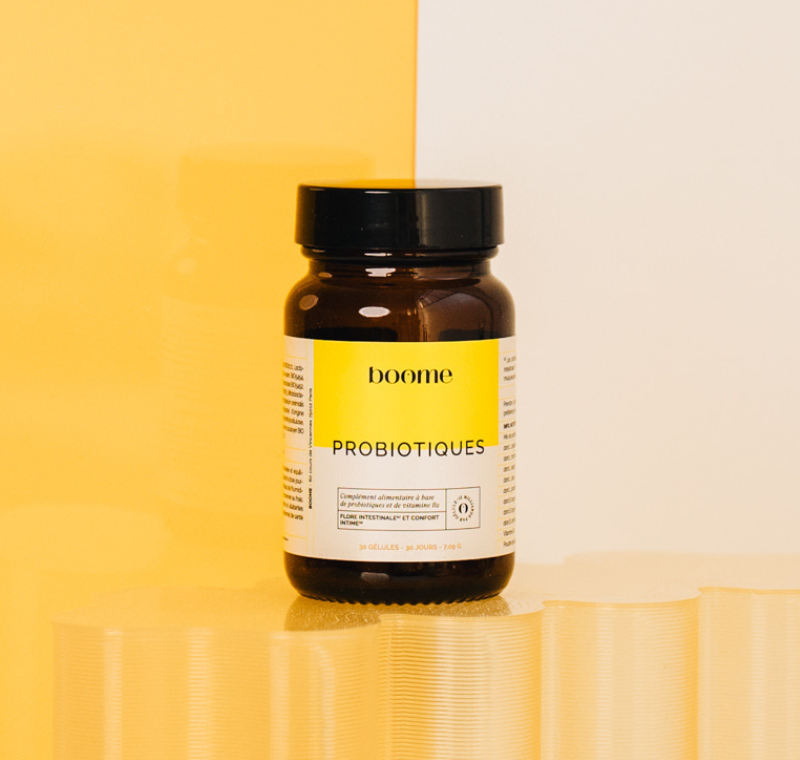
Fatigue, nausea... and now constipation also appears during pregnancy! This disorder, as common as it is annoying, can quickly become a real daily headache. Why is your bowel movements suddenly rebelling? And above all, how can you find a little comfort without endangering your health or that of your baby? In this article, we explain everything: the link between constipation and pregnancy and practical solutions to prevent and relieve this discomfort. Because pregnancy is already emotional enough without adding this type of worry, right?
Why do we get constipated during pregnancy?
It's difficult for pregnant women to avoid constipation during their pregnancy! This discomfort affects MANY expectant mothers. Rest assured: this phenomenon can be explained by several factors.
First of all, hormonal fluctuations are not insignificant. Especially those of progesterone. Essential to pregnancy, it increases from the first months of the adventure. Except that it also has a relaxing effect on muscle fibers, especially those of the uterus and intestine. The consequence? You guessed it: intestinal transit slows down.
At the same time, the uterus, which continues to grow as the pregnancy progresses, exerts progressive pressure on the intestines, further complicating the progression of stools.
It should also be noted that some pregnant women change their eating habits, which can increase the risk of constipation.
Last factor... Dehydration. Because, be aware that during 9 months, water needs increase dramatically to support the pregnancy. However, insufficient hydration can lead to hard stools, which are more difficult to pass.
In short, all these mechanisms, although natural, make constipation almost inevitable. And this is true for many expectant mothers!
Is constipation dangerous for pregnancy?
It's true that constipation can be a pain for pregnant women. However, it's generally mild during pregnancy. At most, it can cause:
- discomfort in the stomach;
- feelings of bloating;
- abdominal pain.
In some cases, however, if constipation persists, it can lead to some indirect complications. For example, repeated straining to have a bowel movement can cause hemorrhoids. These venous swellings in the rectum are common in pregnant women and can be painful.
Much less frequently, extreme constipation can lead to intestinal obstruction. But rest assured, this situation is very rare... So don't worry too much!
When does pregnancy constipation start?
Constipation can occur at different times during pregnancy. But it's often reported as early as the first month of pregnancy. This is mainly due to the rapid increase in progesterone, which, as you may have guessed, slows down bowel movements and causes digestive problems.
In the second trimester of pregnancy , the expectant mother may notice that constipation intensifies. This is particularly true due to the intake of iron-rich food supplements, which can sometimes slow down the frequency of bowel movements.
In the third trimester, bad news : constipation can persist, or even become more severe. The uterus is then much larger, further compressing its neighboring organs and making bowel movements even more difficult.
However, every woman is unique! Some of you may notice an absence of constipation from the beginning to the end of your pregnancy. While others may feel the effects from the first few months of pregnancy.
Prevention: what solutions are there to avoid constipation during pregnancy?
Good news: Constipation during pregnancy can be prevented. And we promise, it's not that complicated. Here are our favorite ways to do it.
1. Favor a diet rich in fiber
Dietary fiber will be your best friend when it comes to pampering your intestinal transit. You'll find it in fiber-rich foods, such as:
- fresh fruits (prunes, kiwis);
- green vegetables (broccoli, spinach);
- whole grain cereals (wholemeal bread, oats);
- legumes (lentils, chickpeas).
To encourage long-term effects, try eating a little bit of them every day. Let us know how you feel!
2. Have sufficient hydration
To prevent stools from becoming too hard, try increasing your water intake. For example, you can set a goal of 1.5 or 2 liters of water per day. This also works with herbal teas (safe for pregnancy) or soups. So, enjoy!
3. Practice regular physical activity
Moving helps stimulate the muscles of the intestine. Choose suitable activities such as:
- gentle gymnastics;
- walking;
- prenatal yoga.
The goal is to stay active every day. Even short sessions of 20 to 30 minutes will have very beneficial effects!
4. Adopt a bowel routine
Preventing constipation also means listening to your body. And don't ignore the urge to go to the bathroom. So, take your time and choose a quiet moment to create a small bowel routine. Try to have a bowel movement every day, around the same time. After a meal, for example. Or your morning coffee!
Healing: How to Relieve Constipation During Pregnancy?
If, despite everything, you're part of the "constipated mom" team, we have more good news for you: it doesn't have to be! As a bonus, here are some simple steps for gentle relief.
1. Rely on natural remedies
Certain foods that are beneficial for your bowel movements can be excellent stimulant laxatives! For example, prunes (dried or juiced) are particularly effective. Or flax or chia seeds: soaked in water, they can help lubricate stools thanks to their fiber content.
2. Favor hot drinks
Hot drinks can also be beneficial in cases of constipation. Consider drinking a hot infusion or a glass of warm water with lemon as soon as you wake up! You'll naturally stimulate your digestive system and kick-start your bowel movements after a night's rest.
3. Adopt good postures
When going to the bathroom, remember to raise your feet slightly using a small stool. This will limit the squatting position, which promotes better rectal opening and easier evacuation.
4. Consume probiotics
Probiotics during pregnancy are a natural solution to improve intestinal transit. These live microorganisms strengthen the intestinal flora, which is often put under strain by hormonal changes. They are found in:
- fermented foods;
- dairy products;
- probiotics for intestinal flora .
In addition to relieving constipation, they support better digestion and contribute to the overall well-being of the expectant mother. In short, it's all good!
When to see a doctor?
If natural remedies aren't enough, lubricating laxatives can be considered, but only under medical supervision. In other words: no self-medication during pregnancy! A doctor can prescribe osmotic laxatives or fiber supplements suitable for pregnancy. These products help soften and increase stool volume without disrupting the body's balance.
However, there are certain signs that should prompt you to consult a doctor or your midwife. For example, if it is accompanied by:
- severe abdominal pain;
- of nausea;
- or vomiting.
Likewise, if you notice blood in your stool or discomfort that persists despite trying relief solutions... Then pay attention. These symptoms may indicate another issue that needs to be addressed.
In short, pregnancy constipation, while uncomfortable, is a common and generally harmless condition. Preventing or relieving it is easy! Adopt a healthy lifestyle and listen to your body's needs. However, if symptoms persist or worsen, don't hesitate to consult a healthcare professional. They will help you maintain your comfort and well-being throughout your pregnancy.









